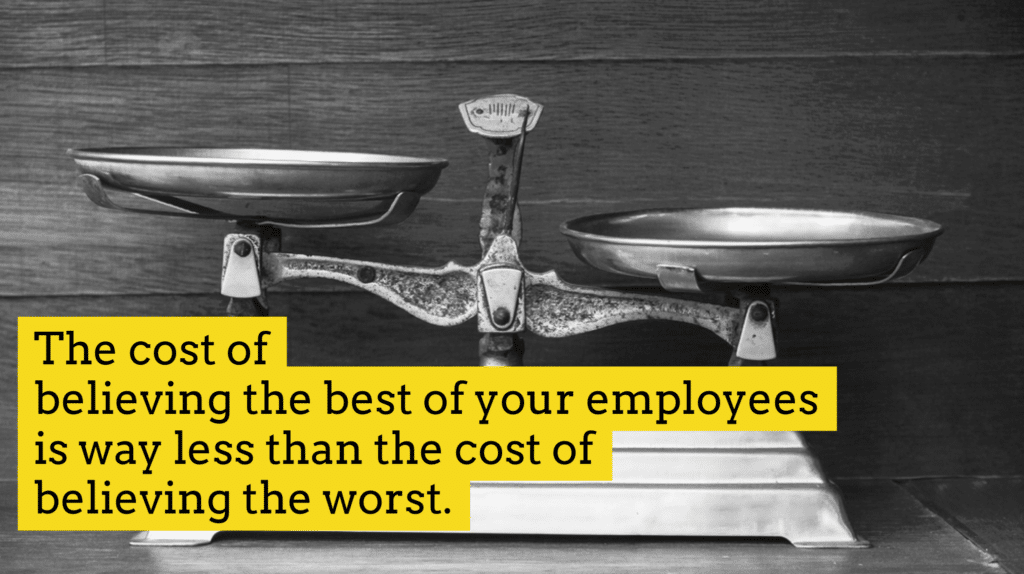
I once worked at a company where everything you did needed to be put into your calendar. I mean everything.
Every meeting. Every appointment. Personal or professional. Your calendar had to be accurate so that anyone else could put an appointment on your calendar for you.
It was kind of crazy. And what was hilarious was the moment when the calendar software for the entire company broke.
The software was called Meeting Maker. And it was run across the network of the company. So when the Meeting Maker servers went down, we literally had no idea where we were supposed to be, and what we were supposed to be doing.
A few, enlightened ones, printed their weekly schedule onto paper back then, and they were the only ones in the meeting rooms.
Why do I tell you this story?
Because to me, this is an example of what happens when a company thinks about protecting itself from its employees. In that same company, we had to turn in electronic time sheets. But this wasn’t about billable hours. It was simply a way to track what people were doing, for each hour of the day. Because no one wanted to pay anyone for an hour they hadn’t worked. Right?
Protecting the company from its employees can be a full time job. More than one, even.
Let’s contrast this with an example from the company where I work right now, Liquid Web.
They recently created a corporate account with Lyft. Every employee puts the Lyft app on their phone and can use it whenever they need it, with the charges going directly to the corporate account.
In other words, employees are free to catch a ride whenever they feel they need one. Without prior approval. Without supervisor approval. Without limits.
This is the kind of thing that would explode the heads of that old company I was talking about.
Think of the potential for abuse! – they’d shout.
But the truth is this – the cost of believing the best of your employees is way less than the cost of believe the worst.
When it comes to culture, the real question, as you build your team, and build your culture, is whether you’re going to believe the best of your staff, or protect yourself from them.
When you look at the systems and processes you have in place – what do they say about whether you believe the best or the worst of your team?